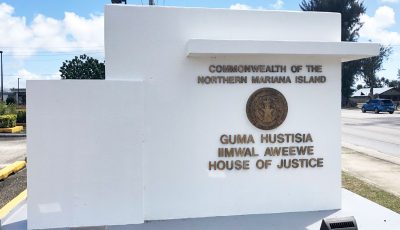High court vacates order setting amount of income to be withheld
On Dec. 28, 2016, the Supreme Court issued its ruling in Domingo v. Celis, 2016 MP 18, holding that the trial court did not abuse its discretion in allowing David I. Celis to orally oppose a motion for an income withholding order without having filed a written opposition, but vacated the order and remanded for a new hearing on other grounds.
This appeal stemmed from Celis’ obligation to pay child support for Jessica C. Domingo’s two children. In 2015, the court found Celis to be delinquent on child support and ordered him to pay the arrears. Subsequently, Domingo filed a motion for an income withholding order, asking the court to withhold $350 per month from Celis’ paycheck for the child support arrears. Celis did not file a written opposition to the motion nor was he present at the hearing, but his attorney asserted that Celis had two other minor children to support and requested that the court reduce the withholding amount from $350 to $250. Relying on that assertion, the court issued an order withholding $250 per month from Celis’ income.
On appeal, Domingo raised two arguments: first, that the court erred when it permitted Celis to orally oppose the motion without having filed a written opposition; second, that the court impermissibly reduced the withholding amount based on statements made by Celis’ attorney without supporting testimony or evidence.
As to the first issue, the Supreme Court determined that the NMI Rules of Civil Procedure do not explicitly prohibit a party from presenting oral arguments when he or she has not filed a written opposition. The high court also noted that family law matters call for flexibility of court rules and that Domingo failed to demonstrate that she was impermissibly disadvantaged by Celis’ oral arguments. For these reasons, the Supreme Court concluded that the trial court did not abuse its discretion in allowing Celis to orally oppose the motion.
The Supreme Court then addressed the second issue on the attorney’s assertion as evidence. The Supreme Court noted that statements by attorneys are not evidence. Therefore, the high court concluded the trial court abused its discretion when it reduced the withholding amount solely based on Celis’ attorney’s assertion that Celis had to support two other minor children. Accordingly, the high court vacated the order setting the amount of income to be withheld and remanded for a new hearing on this issue.
The Supreme Court’s full opinion is available at http://www.cnmilaw.org/supreme16.html.
For further information, contact the Supreme Court at 236-9715. (NMI Judiciary)



























